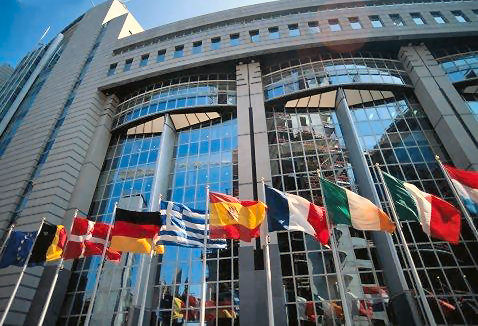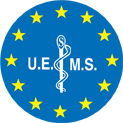EP IMCO committee endorses competence-based training and fosters continued education and training for European medical specialists!

At its meeting on 23rd January 2013, the Internal Market Committee (IMCO) of the European Parliament voted the draft report revising the EU Directive on the mutual recognition of professional qualifications (2005/36/EC). The report from Ms Bernadette Vergnaud (FR - S&D) received an overwhelming support from Members of the Committee with 23 voting in favour, 4 against and 2 abstentions. In doing so, IMCO Members of the European Parliament (MEPs) agreed on a series of compromise amendments that take greater consideration of recent developments in the field of specialist medical education and training.
Competence-based training
In particular, Article 25 of the current directive is now proposed to provide for specialist training to be of no less than 5 years and include areas of competence to be fulfilled.
These elements have been for long the centre of priorities set by the UEMS and official recognition and inclusion in the text will be significant step towards high quality of medical specialists in EU.
MEPs have also decided, as suggested by the UEMS, to extend the definition of ''training requirements'' to encompass specifically ''the common set of knowledge, skills and competences necessary for the pour suit of given profession''. These also are no longer referred to as bare minimums. Other important proposals from the UEMS that were taken over, include:
- Harmonising compensation measures via the introduction of public reporting by the Member States to the Commission.
- Deleting reference to lengths of training as bare minimums.
- Ensuring greater coherence between provisions of the text, eg. partial exemption of training and remunerated traineeships.
Continuing Medical Education and Professional Development
Greater emphasis was also given to continued education and training for health professionals. Whilst the Commission had proposed the introduction of a regular reporting system by the Member States on their national plans for CME-CPD every five years, the IMCO committee calls Member States to ''introduce schemes of mandatory continuing education and training'' for health professionals.
MEPs also suggested that the Commission and the Member States should collect reports on the assessment of establishments providing CME-CPD by external bodies.
The UEMS recognises that these proposals are likely to bring significant changes to the landscape of CME-CPD in Europe and is gauging their potential consequences, should these come through. The UEMS is also encouraged by the increased recognition of the importance of CME-CPD for all medical and healthcare practitioners in Europe and will continue to lobby institutions in order to promote the UEMS policy on this matter.
Common training principles
CTPs originally were proposed in the Commission's proposal as complementary tools for the recognition of qualifications beside the already existing mechanisms of automatic recognition and the general system. The UEMS had suggested that CTPs (CT frameworks and CT tests) were valuable concepts that could be helpful for ascertaining and/or complementing proper checks of the competence of candidates to mobility.
First, the components of CTPs, ie. knowledge, skills and competence, were seen as adequate benchmarks against which common training requirements of the various medical specialties benefiting from automatic recognition. As reported, these elements are now included in the definition of ''training requirements'' (see above).
Second, CTPs are in effect aptitude tests that professionals under the general system (ie. outside of automatic recognition) can take in order to be recognised more easily. It is the UEMS ambition that training requirements and European Curricula elaborated by the UEMS Sections & Boards can be recognised as CTPs within the framework of the revised Directive. Further to the vote by the IMCO committee, this objective can still be achieved.
Third, CTPs were seen as an appealing alternative option for those specialties which do not benefit from the mechanism of automatic recognition. The UEMS shares an opinion that automatic recognition has to remain as the fundamental mechanism for medical specialists, but it is ready to envisage CTP-based solution, should the difficulties in introducing new specialties in the annex of the Directive continue. CTPs were also considered as adequate mechanisms to accommodate specialities which were qualified as ''particular qualifications''.
The UEMS will continue to follow the developments in the provisions pertaining to these innovative proposals from the Commission and investigate these options and their implications in light of the UEMS priorities and activities.
European professional card
The IMCO committee has confirmed the introduction of a European professional card. Besides the extension of administrative deadlines for the delivery of the care, MEPs have voted that tacit authorisation does not constitute an automatic right to practise.
The UEMS welcomes introduction of the EPC in general as a positive development further to the stakeholders' consultations, it very much regrets that the Parliament has not decided to be more forward thinking in its approach to the card, particularly as regards its potential use and application. The UEMS is satisfied that its suggestion that the delivery of the EPC should be at no cost for the professionals was supported.
Partial access
IMCO MEPs have proposed to exempt automatic recognition professions from the principle of partial access and have also strengthened the right of competent authorities for healthcare professionals under the general system to deny partial access on the basis of overriding reasons of general interest, including public health and safety. The UEMS welcomes this proposal as it is in line with the UEMS suggestions.
Transparency, accountability and stakeholders' involvement
The IMCO committee supported proposals that experts from professional groups should be consulted and involved in the work of the new recognition committee to be established when the revised Directive comes into force.
The committee also decided that the Commission will have to report on a regular basis on the implementation of the directive, particularly the delegated acts it has adopted as well as the problems remaining.
Both of these issues were part of the proposals submitted to MEPs by the UEMS and other medical organisations. The UEMS is pleased that these were supported.
Alert mechanism
MEPs have endorsed the Commission's proposal to introduce a mandatory alert mechanism for competent authorities to share fitness to practise/disciplinary determinations. They have also proposed to extend it to all restrictions on a professional's registration and the exchange of information about fraudulent applications.
Language assessment
The IMCO committee has clarified that competent authorities are allowed to assess the language skills of all healthcare professionals after recognition but before access to the practice.
The UEMS is very much encouraged by these recent developments and would like to express its strong support to MEPs in view of the adoption of Ms Vergnaud's report at the plenary session to be held in May as well as the negotiations that will follow with the EU Council. The UEMS Executive invites all National Medical Associations, members of the UEMS, to continue their efforts in raising awareness and lobbying their national MEPs and government in order to ensure ultimately that the achievements of the vote in IMCO are confirmed in the final version of the revised Professional Qualifications Directive. The UEMS Executive also encourages all UEMS structures to liaise with and to contribute their areas of concern and interest on this issue to the Brussels Office in order to continue our current efforts and confirm what has been achieved thus far.
- Files:
 UEMS_News_2013.01.en.pdf 320 K
UEMS_News_2013.01.en.pdf 320 K
- Links:
- www.uems.net
